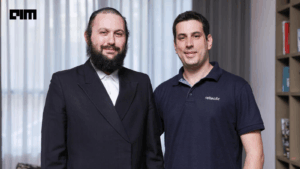“Over 90% of eligible importers don’t apply for tariff refunds … it’s too painful,” wrote Justin Sherlock, co-founder and CEO of Caspian. “The data lives in too many systems, the paperwork is brutal, and there’s no easy way to forecast or manage it.”
Sherlock and co-founder Matt Ebeweber spent years at Flexport watching manufacturers and retailers struggle with the complexity of duty drawback: a process that allows companies to reclaim tariffs on imported goods that are later re-exported. The paperwork, regulatory interpretation, and data matching often spanned years and multiple systems, making it unmanageable for all but the largest players.
In 2024, they left to build Caspian, a startup focused on automating this process through AI and modern software infrastructure. Backed by $5.4 million in seed funding from Primary Venture Partners and Blank Ventures, the company launched publicly this month with a platform designed to make duty recovery faster, cheaper, and more reliable for businesses of all sizes.
Replacing Manual Drawback Claims with AI-Driven Filing
Duty drawback, the refund of tariffs on imported goods that are later exported, is among the most opaque corners of international trade. Filing a claim requires matching years of import-export records, interpreting dense customs codes, and navigating an audit-prone review process from U.S. Customs and Border Protection. Historically, companies have relied on expensive consultants or in-house teams to handle the work. Even then, many eligible claims go unfiled.
Caspian’s pitch is to automate what consultants do manually, and do it faster. Its platform connects directly to a client’s trade records, inventory systems, and shipping data to identify, calculate, and submit drawback claims. According to Caspian, claims that traditionally took months can now be filed in days.
The company’s product is built around automation workflows, compliance risk detection, and dynamic rule updates based on changing tariff classifications. It integrates into supply chain systems with APIs and offers dashboards for finance and logistics teams to track claim statuses and total duty spend.
What may set Caspian apart from other AI entrants in the trade tech space is its regulatory positioning. While software competitors like iCustoms.AI focus on classification and documentation, and older players like J.M. Rodgers Co. emphasize manual accuracy, Caspian is authorized to file claims directly with customs. This gives it a structural advantage in scaling its services.
Established Brokers, Enterprise Software, and a New Category of Players
The timing of Caspian’s launch coincides with a resurgence in tariff enforcement, following a renewed push by the Trump administration to impose reciprocal duties on imported goods. These changes have made recovery services more financially meaningful to businesses that once wrote tariffs off as sunk costs.
Yet Caspian is entering a crowded and varied field. Traditional customs brokers such as Livingston International and Alliance Drawback Services offer full-service consulting backed by decades of experience. Meanwhile, tech-enabled incumbents like Oracle and MIC-CUST offer modular duty management within larger enterprise systems. Even Flexport, the former employer of Caspian’s founders, has launched its own suite of AI-powered tools.
What distinguishes newer players like Caspian is their focus on cost recovery rather than compliance or logistics. As Sherlock told Forbes, “Over 90% of eligible businesses are leaving cash on the table because claiming duty refunds is so painful. We built Caspian to leverage AI alongside our expert staff to make organizations’ trade data usable, making claims more compliant and refunds easier to recover.”
Still, the market isn’t without friction. Smaller firms may lack the trade volume to make duty recovery cost-effective, while large enterprises may be reluctant to swap out long-standing broker relationships. And while Caspian’s automation reduces processing time, the ultimate bottleneck may lie with CBP itself. The agency has begun scrutinizing automated claims more closely, with recent audits uncovering $139 million in owed duties in a single month.
Caspian’s funding and early traction reflect growing investor confidence in applying AI to regulated industries. According to Primary Venture’s Emily Man, now a Caspian board member: “Caspian is poised to invent their own software vertical [in] tariff management and become the go-to platform for global duty optimization.”











